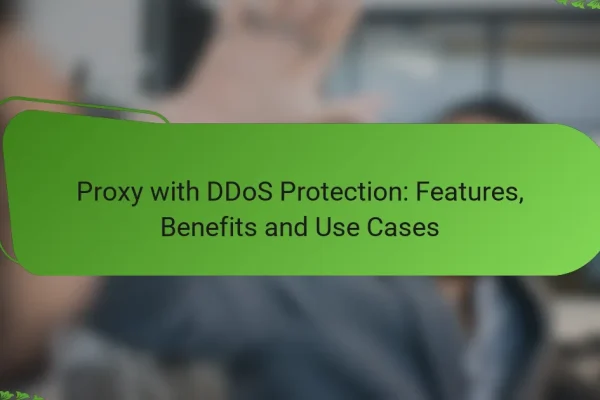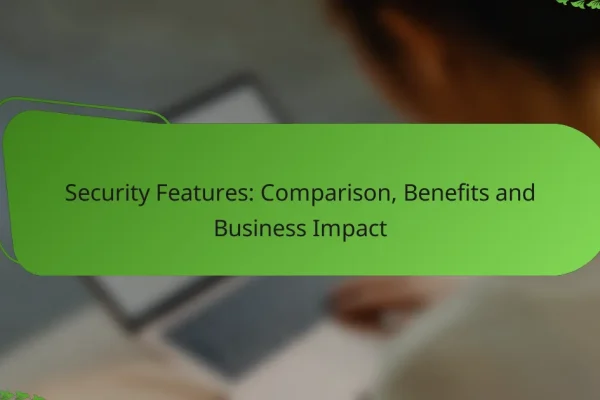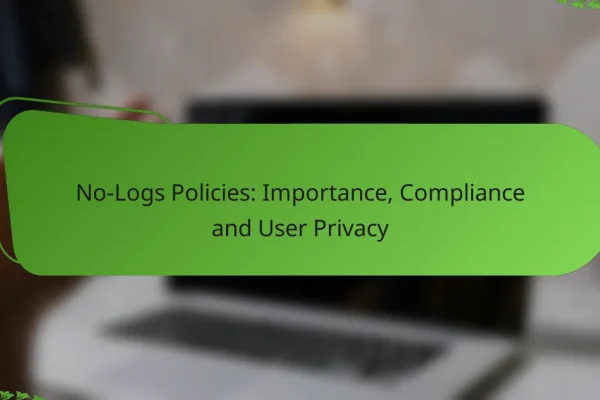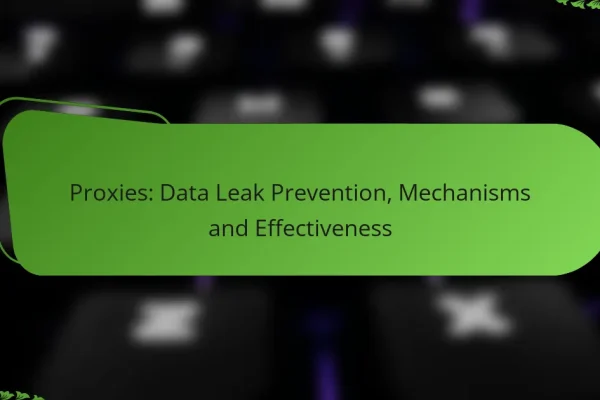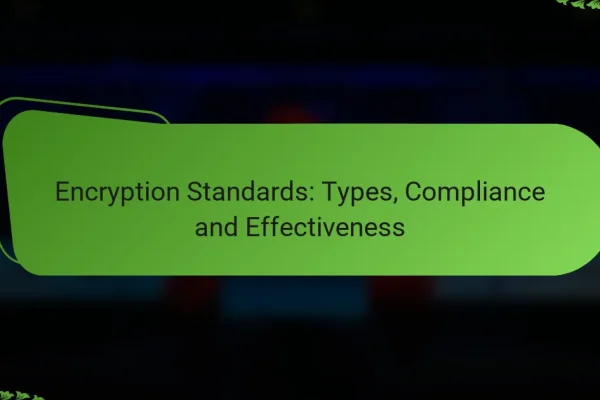What security features should I look for in proxy services?
When choosing proxy services, prioritize features that enhance your online security and privacy. Key aspects include encryption protocols, IP masking capabilities, authentication methods, data leak protection, and firewall integration.
Encryption protocols
Encryption protocols are essential for securing data transmitted through a proxy. Look for services that use strong encryption standards like AES-256, which is widely recognized for its robust security. This ensures that your data remains confidential and protected from eavesdropping.
Additionally, consider proxies that support multiple encryption protocols, such as OpenVPN, L2TP/IPsec, and IKEv2. This variety allows you to choose the best option based on your specific needs and network conditions.
IP masking capabilities
IP masking is a critical feature that hides your real IP address, making it difficult for websites and trackers to identify your location. A good proxy service should offer a pool of IP addresses to rotate through, enhancing anonymity while browsing.
Choose proxies that provide both static and dynamic IP options. Static IPs are useful for accessing region-restricted content, while dynamic IPs can further obscure your online footprint.
Authentication methods
Robust authentication methods are vital for ensuring that only authorized users can access the proxy service. Look for services that offer multi-factor authentication (MFA) to add an extra layer of security beyond just a username and password.
Additionally, consider proxies that support various authentication protocols, such as Basic Auth, Digest Auth, or OAuth. This flexibility allows you to integrate the proxy service seamlessly into your existing security infrastructure.
Data leak protection
Data leak protection features help prevent sensitive information from being exposed while using a proxy. Services should offer DNS leak protection, which ensures that DNS queries are routed through the proxy, keeping your browsing activity private.
Also, look for features like WebRTC leak protection, which can inadvertently expose your real IP address during peer-to-peer connections. A reliable proxy service will have built-in mechanisms to mitigate these risks.
Firewall integration
Firewall integration enhances the security of your proxy service by filtering incoming and outgoing traffic. A good proxy should be compatible with popular firewall solutions, allowing you to set rules that control access based on specific criteria.
Consider services that offer customizable firewall settings, enabling you to block unwanted traffic and protect your network from potential threats. This feature is particularly important for businesses that handle sensitive data or operate in regulated industries.
How do proxy services enhance online security in the UK?
Proxy services enhance online security in the UK by acting as intermediaries between users and the internet, masking IP addresses and providing additional layers of protection. They help prevent unauthorized access and mitigate various online threats, ensuring safer browsing experiences.
Protection against DDoS attacks
Proxy services can effectively shield users from Distributed Denial of Service (DDoS) attacks by distributing incoming traffic across multiple servers. This distribution helps absorb and mitigate the impact of malicious traffic, ensuring that legitimate users can still access services without interruption.
When selecting a proxy service for DDoS protection, look for features such as traffic filtering and rate limiting. These capabilities can significantly reduce the risk of downtime and maintain service availability during an attack.
Secure browsing environments
Proxy services create secure browsing environments by encrypting data transmitted between the user and the internet. This encryption protects sensitive information, such as login credentials and financial data, from potential eavesdroppers.
Consider using proxies that support HTTPS connections to enhance security further. Additionally, ensure that the proxy provider has a solid reputation for maintaining user privacy and security standards.
Privacy compliance
Proxy services help users comply with privacy regulations by anonymizing their online activities. This is particularly relevant in the UK, where data protection laws like GDPR impose strict requirements on how personal data is handled.
When choosing a proxy service, verify that it adheres to privacy regulations and does not log user activity. This compliance not only protects individual privacy but also minimizes legal risks associated with data breaches or misuse.
What are the benefits of using residential proxies for security?
Residential proxies enhance security by masking your real IP address with that of a legitimate user, making it harder for websites to detect and block your activities. They provide a layer of anonymity that protects sensitive data and reduces the risk of being banned while browsing or scraping data.
Real user IP addresses
Residential proxies use IP addresses assigned to real devices, which makes them appear as genuine users to websites. This authenticity helps in bypassing restrictions that target data centers or suspicious IP ranges. For example, when accessing geo-restricted content, using a residential proxy can make it seem like you are browsing from the desired location.
Reduced ban risk
Using residential proxies significantly lowers the likelihood of being banned from websites. Since these proxies mimic real user behavior, they are less likely to trigger automated security systems that monitor for unusual patterns. To further minimize ban risks, rotate IP addresses frequently and avoid making too many requests in a short time frame.
Geolocation advantages
Residential proxies offer geolocation benefits by allowing users to access content specific to certain regions. This is particularly useful for marketers and businesses looking to analyze local market trends or for individuals wanting to access region-locked services. When selecting a residential proxy service, consider the locations available to ensure they meet your specific needs.
How do I choose a secure proxy service?
To choose a secure proxy service, prioritize features like encryption, anonymity, and a no-logs policy. Assessing these elements will help ensure your online activities remain private and protected from potential threats.
Evaluate security features
When evaluating security features, look for strong encryption protocols such as AES-256, which is widely regarded as secure. Additionally, check if the service offers features like IP masking, DNS leak protection, and support for secure tunneling protocols like OpenVPN or WireGuard.
Consider the provider’s privacy policy to confirm they have a no-logs policy, meaning they do not store your browsing history or personal information. This is crucial for maintaining your anonymity online.
Check user reviews
User reviews can provide valuable insights into the reliability and security of a proxy service. Look for feedback on the service’s performance, customer support, and any reported security breaches.
Focus on reviews from reputable tech websites or forums where users discuss their experiences. A proxy service with consistently positive reviews is often a safer choice.
Compare pricing plans
Pricing plans can vary significantly among proxy services, so it’s essential to compare them carefully. Look for services that offer a free trial or a money-back guarantee, allowing you to test their security features without commitment.
Consider the value of the features included in each plan. A slightly higher price may be justified if the service offers robust security features and excellent customer support. Aim for plans that provide good performance for a reasonable monthly fee, typically ranging from $5 to $15 per month.
What are the risks of using free proxy services?
Free proxy services come with significant risks, including data privacy issues, exposure to malware, and limited security features. Users often compromise their personal information and device security when opting for these no-cost solutions.
Data privacy concerns
Using free proxy services can lead to serious data privacy concerns. Many of these services log user activity and may sell this information to third parties, putting personal data at risk. Without proper encryption, sensitive information like passwords and credit card numbers can be intercepted by malicious actors.
To mitigate these risks, consider using reputable paid proxy services that prioritize user privacy and offer clear privacy policies. Always check if the service has a no-logs policy, which means they do not store any user data.
Malware exposure
Free proxy services can expose users to malware and other security threats. Some proxies may inject malicious code into web pages or serve ads that contain harmful software. This can lead to compromised devices and stolen personal information.
To protect against malware, avoid using unknown or unverified proxy services. Instead, opt for well-established providers that have a track record of security and user protection.
Limited security features
Many free proxy services offer limited security features, which can leave users vulnerable. They often lack advanced encryption protocols, making it easier for hackers to access data. Additionally, free proxies may not provide adequate protection against DNS leaks, which can expose your browsing activity.
For better security, choose a proxy service that includes features like HTTPS support, strong encryption, and DNS leak protection. Investing in a reliable service can significantly enhance your online safety and privacy.







